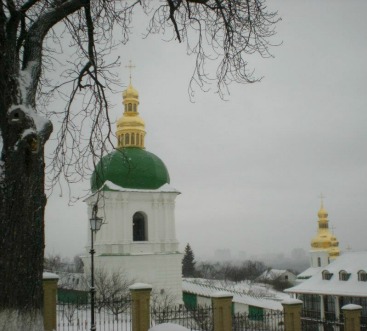Mr. President, later this week individuals around the world will mark World Press Freedom Day. The functioning of free and independent media is tied closely to the exercise of many other fundamental freedoms as well as to the future of any democratic society. The Commission on Security and Cooperation in Europe, which I co-chair, is responsible for monitoring press freedom in the 55 participating States of the Organization for Security and Cooperation in Europe, OSCE. Recently, I reported to the Senate on the deplorable conditions for independent media in the Republic of Belarus. Today, I will address the situation of journalists and media outlets in Ukraine.
Several discouraging reports have come out recently concerning the medic environment in Ukraine. These reports merit attention, especially within the context of critical presidential elections scheduled to take place in Ukraine next year. The State Department’s Country Reports on Human Rights Practices in Ukraine for 2002 summarizes media freedoms as follows: “Authorities interfered with the news media by intimidating journalists, issuing written and oral instructions about events to cover and not to cover, and pressuring them into applying self-censorship. Nevertheless a wide range of opinion was available in newspapers, periodicals, and Internet news sources.”
Current negative trends and restrictive practices with respect to media freedom in Ukraine are sources of concern, especially given that country’s leadership claims concerning integration into the Euro-Atlantic community. Lack of compliance with international human rights standards, including OSCE commitments, on freedom of expression undermines that process. Moreover, an independent media free from governmental pressure is an essential factor in ensuring a level playing field in the upcoming 2004 presidential elections in Ukraine.
In her April 18, 2003 annual report to the Ukrainian parliament, Ombudsman Nina Karpachova asserted that journalism remains among the most dangerous professions in Ukraine, with 36 media employees having been killed over the past ten years, while beatings, intimidation of media employees, freezing of bank accounts of media outlets, and confiscation of entire print runs of newspapers and other publications have become commonplace in Ukraine.
The murder of prominent journalist Heorhiy Gongadze–who disappeared in September 2000–remains unsolved. Ukrainian President Kuchma and a number of high-ranking officials have been implicated in his disappearance and the circumstances leading to his murder. The Ukrainian authorities’ handling, or more accurately mishandling of this case, has been characterized by obfuscation and stonewalling. Not surprisingly, lack of transparency illustrated by the Gongadze case has fueled the debilitating problem of widespread corruption reaching the highest levels of the Government of Ukraine.
Audio recordings exist that contain conversations between Kuchma and other senior government officials discussing the desirability of Gongadze’s elimination. Some of these have been passed to the U.S. Department of Justice as part of a larger set of recordings of Kuchma’s conversations implicating him and his cronies in numerous scandals. Together with Commission Co-Chairman Rep. Chris Smith, I recently wrote to the Department of Justice requesting technical assistance to determine whether the recordings in which the Gongadze matter is discussed are genuine. A credible and transparent investigation of this case by Ukrainian authorities is long overdue and the perpetrators–no matter who they may be–need to be brought to justice.
The case of Ihor Alexandrov, a director of a regional television station, who was beaten in July 2001 and subsequently died also remains unsolved. Serious questions remain about the way in which that case was handled by the authorities.
A Human Rights Watch report, “Negotiating the News: Informal State Censorship of Ukrainian Television,” issued in March, details the use of explicit directives or temnyky, lists of topics, which have been sent to editors from Kuchma’s Presidential Administration on what subjects to cover and in what manner. The report correctly notes that these temnyky have eroded freedom of expression in Ukraine, as “editors and journalists feel obligated to comply with temnyky instructions due to economic and political pressures and fear repercussions for non-cooperation.” To their credit, the independent media are struggling to counter attempts by the central authorities to control their reporting and coverage of issues and events.
Another troubling feature of the media environment has been the control exerted by various oligarchs with close links to the government who own major media outlets. There is growing evidence that backers of the current Prime Minister and other political figures have been buying out previously independent news sources, including websites, and either firing reporters or telling them to cease criticism of the government of find new jobs.
Last December, Ukraine’s parliament held hearings on “Society, Mass Media, Authority: Freedom of Speech and Censorship in Ukraine.” Journalists’ testimony confirmed the existence of censorship, including temnyky, as well as various instruments of harassment and intimidation. Tax inspections, various legal actions or license withdrawals have all been used as mechanisms by the authorities to pressure media outlets that have not towed the line or have supported opposition parties.
As a result of these hearings, the parliament, on April 3rd, voted 252 to one to approve a law defining and banning state censorship in the Ukrainian media. This is a welcome step. However, given the power of the presidential administration, the law’s implementation remains an open question at best, particularly in the lead up to the 2004 elections in Ukraine.
I urge our Ukrainian parliamentary colleagues to continue to actively press their government to comply with Ukraine’s commitments to fundamental freedoms freely agreed to as a signatory to the Helsinki Final Act. I also urge the Ukrainian authorities, including the constitutional “guarantor”, to end their campaign to stifle independent reporting and viewpoints in the media. Good news from Ukraine will come not from the spin doctors of the presidential administration, but when independent media and journalists can pursue their responsibilities free of harassment, intimidation, and fear.






